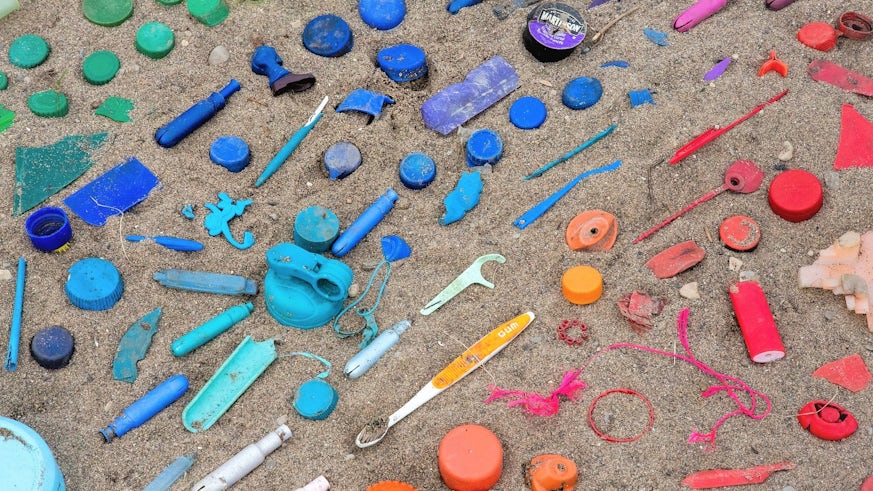PhD Insights: Understanding the transport and fate of microplastics in freshwater environments
11 January 2021

PhD student James Lofty uses principles of hydrodynamics and sediment transport to understand the fate of microplastics in aquatic systems.
Microplastic pollution (plastics smaller 5mm in size) has raised global concern over its wide distribution, concentration and environmental consequences in the aquatic environment. Although it is estimated that rivers deliver as much as 80% of the overall load of plastic pollution into the world’s oceans, microplastic pollution in the freshwater environment is relatively understudied (Horton et al., 2017).
The transportation and fate of microplastic pollution in freshwater bodies is largely unknown due the dynamic nature of microplastics and complex interactions they have with other sediment particles and turbulent flow. Using knowledge from hydrodynamics, sediment transport and environmental science disciplines can help develop a fuller picture of the pathways of microplastic pollution in aquatic environments.
James Lofty started his PhD at the School of Engineering in October 2020. His project, co-supervised by Dr Catherine Wilson and Dr Pablo Ouro, aims to better understand the fate and movement of microplastics in aquatic systems. This includes identifying the physical properties and mechanisms based on fluid dynamics, which govern microplastic particles behaviour and transport. Understanding these processes will help to develop numerical models that will estimate the motion of microplastics particles in rivers and will inform future environment policies aiming to reduce the flux of microplastics in the environment.

Using open channel flumes, James aims to investigate the behaviour of microplastics under different environment parameters such as varying flow rates, riverbed substrates and vegetation densities. His research will help develop the basic principles and mechanisms of microplastic movement in the river water column and sediment.
James says: “A detailed knowledge of the transport and fate of microplastics in our aquatic environment is essential for developing a global picture of microplastic pollution, understanding the associated ecological risk and implementing effective environmental policy for the reduction of microplastic pollution in our vulnerable aquatic ecosystems.”
Over the course of his PhD, James would like to apply the knowledge gained in laboratory-based experiments to field-based experiments to evaluate their implications in a real-world environment.
To find out more about James’ research project, please contact him at loftyj@cardiff.ac.uk or via Twitter or LinkedIn.
Horton, Alice A, Alexander Walton, David J Spurgeon, Elma Lahive, and Claus Svendsen. ‘Microplastics in Freshwater and Terrestrial Environments: Evaluating the Current Understanding to Identify the Knowledge Gaps and Future Research Priorities’. Science of the Total Environment 586 (2017): 127–41.
Share this story
For more information, visit the Water Research Institute website.



